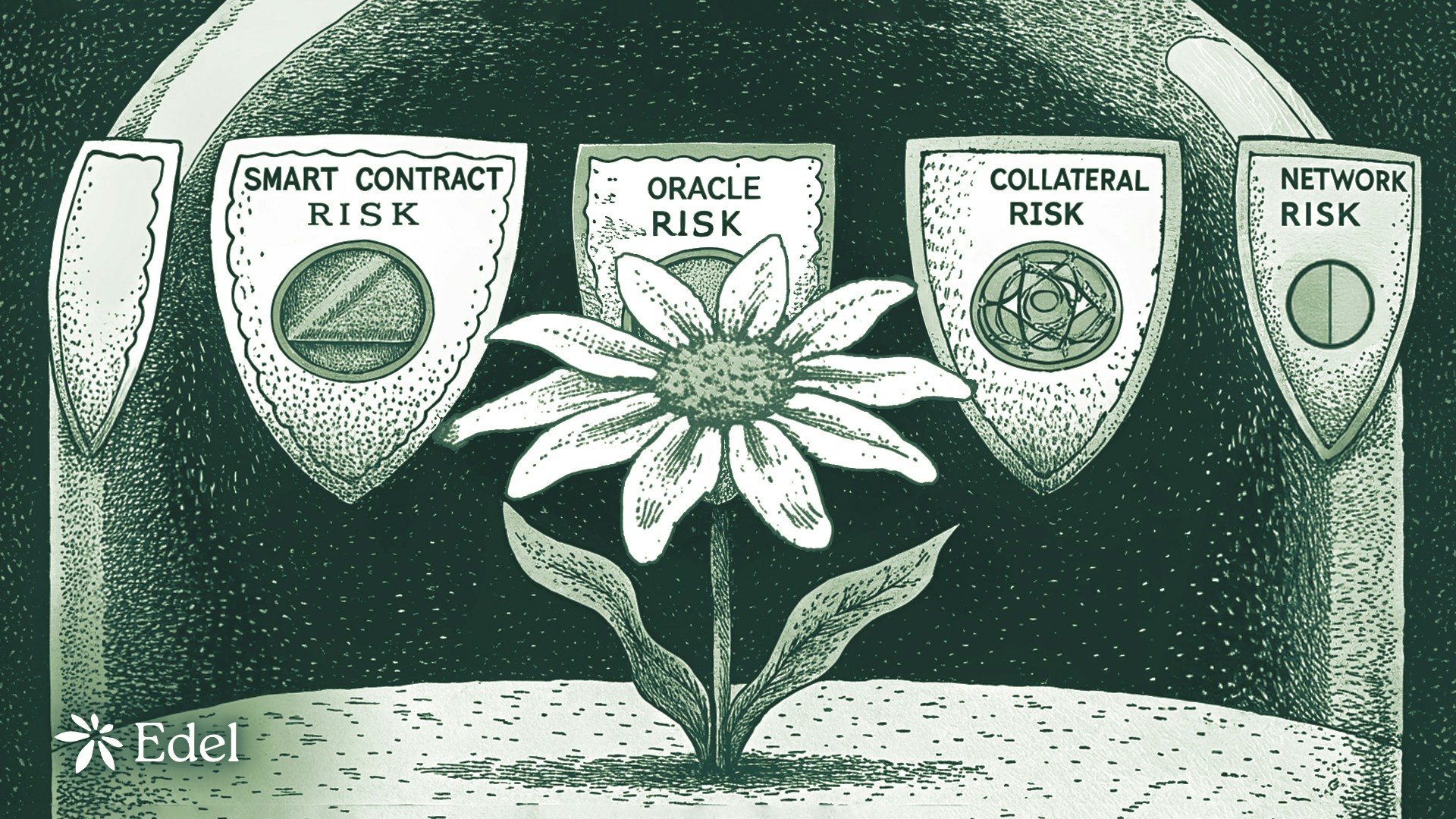
All risk parameters are continuously monitored and can be adjusted through governance to respond to changing market conditions.
Risk Categories
Smart Contract Risk
Code vulnerabilities and implementation bugs that could affect protocol security
Oracle Risk
Price feed accuracy and external data reliability concerns
Collateral Risk
Asset value fluctuations and liquidity considerations
Network Risk
Blockchain infrastructure and bridge security challenges
Smart Contract Risk
Mitigation Strategies
Aave Protocol Foundation- Built on Aave’s extensively audited and battle-tested codebase
- Benefits from Aave’s multiple independent third-party security audits
- Leverages proven smart contract architecture with years of production use
- We have currently not implemented any changes from the original Aave smart contracts
- Check Diff here (COMING SOON)
- Any future changes will be thorooughly audited before deployment
- In addition to smart contract audits, we are working with TBD on day-one risk monitoring and parameterization of the Edel protocol to maintain protocol operations and to manage bad debt risk.
Oracle Risk
Oracle dependencies introduce potential risks from incorrect price valuations or data feed failures.Risk Sources
Price Feed Accuracy
Price Feed Accuracy
Incorrect asset valuations can affect collateral calculations and liquidation thresholds
Oracle Compromise
Oracle Compromise
Security breaches or manipulation of oracle systems could impact protocol operations
Data Availability
Data Availability
Oracle downtime or connectivity issues may prevent accurate price updates
Mitigation Approach
Decentralized Oracle Infrastructure- Multiple independent oracle nodes provide redundancy
- Cryptographic proof mechanisms ensure data integrity
- Real-time monitoring of oracle performance and accuracy